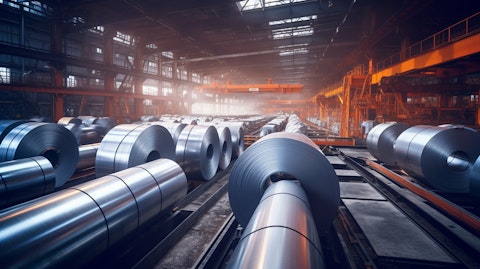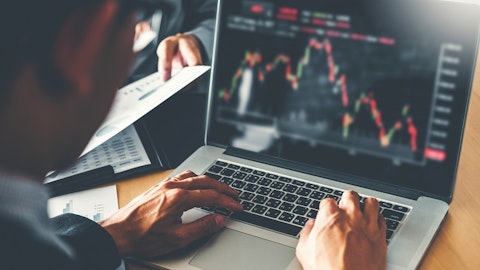Aluminum is a versatile and lightweight metal known for its low density and being roughly one-third the weight of steel or copper. Its unique properties, such as high strength-to-weight ratio, corrosion resistance, and excellent conductivity, make it essential in various sectors, including transportation, construction, and packaging.
One of the primary drivers of aluminum’s growth is the increasing focus on sustainability across industries. With its recyclability and lower carbon footprint compared to other metals, aluminum is becoming a go-to material for green technologies. The automotive and electric vehicle (EV) industry, in particular, is driving demand for aluminum as manufacturers seek lightweight materials to improve efficiency and range. By incorporating aluminum into vehicle designs, automakers also meet regulatory standards for emissions reduction.
Aluminum also plays a critical role in the renewable energy sector, as the production of solar and wind products requires significant amounts of aluminum. In addition to these industries, aluminum’s unique properties make it an ideal material for food packaging, and the construction sector, including infrastructure, and development.
In the report, Opportunities for Aluminium in a Post-COVID Economy, conducted by CRU International, the global demand for aluminum is projected to rise by nearly 40% by 2030. The aluminum sector will need to produce an additional 33.3 million tonnes to meet this demand, with production increasing from 86.2 million tonnes in 2020 to 119.5 million tonnes by 2030 across all industrial sectors.
According to the report, two-thirds of this demand growth is expected to come from China, which will require 12.3 Mt, whereas the rest of Asia will add a further 8.6 Mt. North American region will require 5.1 Mt and Europe 4.8 Mt. Together, these four regions alone will account for more than 90% of the additional aluminum required globally.
Read Also: 10 Oil Stocks with Biggest Upside Potential According to Analysts and 7 Best Emerging Markets Stocks To Buy Now.
The Aluminum Market Amid Global Changes
In an interview with CNBC on November 12, William Oplinger, President and CEO of Alcoa, said that he considers the Chinese market a crucial factor in the aluminum industry. He noted that China’s enormous appetite for commodities, particularly in the green sector, has a significant impact on the aluminum market. China currently produces around 45 million metric tons of aluminum, out of a global market of 75 million metric tons. However, the country has capped its production capacity at 45 million metric tons, meaning that any growth in demand will be met through secondary and recycling sources.
In terms of near-term dynamics, Oplinger expressed optimism about the demand for aluminum, citing continued strength in the packaging business, growth in the automotive and transportation sector, and potential growth in building construction spurred by lower interest rates worldwide.
Looking ahead to the long term, Oplinger emphasized the importance of aluminum in the energy transition economy, highlighting growth opportunities in areas such as electrical conductors, photovoltaic cells, and electric vehicles.
Aluminum Market Sees Price Spike as China Cancels Export Tax Rebate
On November 29, China’s finance ministry announced that it would be making significant changes to its export tax rebate policy, set to take effect on December 1. The ministry announced that it will cancel the export tax rebate for several products, including aluminum and copper products. The announcement had an immediate impact on the market, with aluminum prices surging on the London Metal Exchange. Traders are anticipating that the cancellation of the export tax rebate for aluminum will curb the heavy flow of Chinese aluminum exports, leading to a reduction in global supply and a subsequent increase in prices.
As the aluminum industry continues to evolve amidst a changing global landscape, one thing remains certain, the growing demand for this versatile metal looks bright. With growing demand, shifting market dynamics, and emerging trends shaping the sector, now is an exciting time for investors to explore opportunities in the aluminum market. With that in context, let’s take a look at the 10 best aluminum and aluminum mining stocks to buy.

An aerial view of an aluminum mill, showcasing the company’s production capabilities.
Our Methodology
For this article, we sifted through Base Metal ETFs and online rankings to form an initial list of 20 companies that are involved in the production, extraction, processing, or sale of aluminum and aluminum-related products. We then used Insider Monkey’s Hedge Fund database to rank 10 stocks according to the largest number of hedge fund holders. The list is sorted in ascending order of hedge fund sentiment, as of the third quarter.
Why do we care about what hedge funds do? The reason is simple: our research has shown that we can outperform the market by imitating the top stock picks of the best hedge funds. Our quarterly newsletter’s strategy selects 14 small-cap and large-cap stocks every quarter and has returned 275% since May 2014, beating its benchmark by 150 percentage points (see more details here).
10 Best Aluminum and Aluminum Mining Stocks To Buy
10. Kaiser Aluminum Corporation (NASDAQ:KALU)
Number of Hedge Fund Holders: 17
Kaiser Aluminum Corporation (NASDAQ:KALU) is a leading producer of semi-fabricated specialty aluminum products used in aerospace, automotive, packaging, general engineering, automotive extrusions, and industrial applications. The company’s client base includes major aerospace manufacturers and automotive companies.
Kaiser Aluminum Corporation (NASDAQ:KALU) focuses on premium product offerings and operational efficiency to enhance profitability. Recent growth strategies include expanding capacity and diversifying product lines to meet industry demands. Kaiser Aluminum Corporation (NASDAQ:KALU) has been focused on improving its operational efficiency and investing in capital expenditures to enhance its production capabilities. Specifically, the company’s Warrick packaging facility is undergoing performance enhancements, which are expected to be complete by the end of the year. This investment is anticipated to lead to margin improvement and drive profitability and growth. Kaiser Aluminum Corporation (NASDAQ:KALU) is also looking for additional ways to further improve operations and efficiency.
9. Ardagh Metal Packaging SA. (NYSE:AMBP)
Number of Hedge Fund Holders: 23
Ardagh Metal Packaging SA. (NYSE:AMBP) is a leading global supplier of recyclable aluminum beverage cans and ends. The company serves a diverse range of categories such as beer, carbonated soft drinks, energy drinks, and more. The company operates 23 production facilities across nine countries and employs approximately 6,300 people.
On October 24, Ardagh Metal Packaging SA. (NYSE:AMBP) reported a solid Q3, with adjusted EBITDA growth ahead of guidance for the third successive quarter. In Europe, Ardagh Metal Packaging SA.’s (NYSE:AMBP) shipments increased by over 2% for the quarter. The company attributes this growth to a strong end market, with customers favoring cans in their pack mix and rebuilding inventory levels. Despite some short-term capacity constraints, Ardagh Metal Packaging SA. (NYSE:AMBP) is confident in the region’s recovery and has increased its expectations for shipment growth in Europe to 3% to 4% for the year.
In the Americas, Ardagh Metal Packaging SA. (NYSE:AMBP) has also seen growth, with revenue increasing by 1% to $741 million. The company has benefited from favorable volume mix effects and lower operating costs, including a stronger manufacturing performance and improved fixed cost absorption.
To drive growth, Ardagh Metal Packaging SA. (NYSE:AMBP) is investing in its manufacturing footprint, with a focus on increasing capacity and improving efficiency. The company is also working to strengthen its customer relationships, with a focus on providing high-quality products and services. In addition, Ardagh Metal Packaging SA. (NYSE:AMBP) is committed to sustainability, with a goal of achieving 100% renewable energy by 2050. The company has made significant progress in this area, with a recent agreement to purchase renewable energy in Portugal.





